Blind Skateboarder Nick Mullins to Shine at Paris Olympics Demo
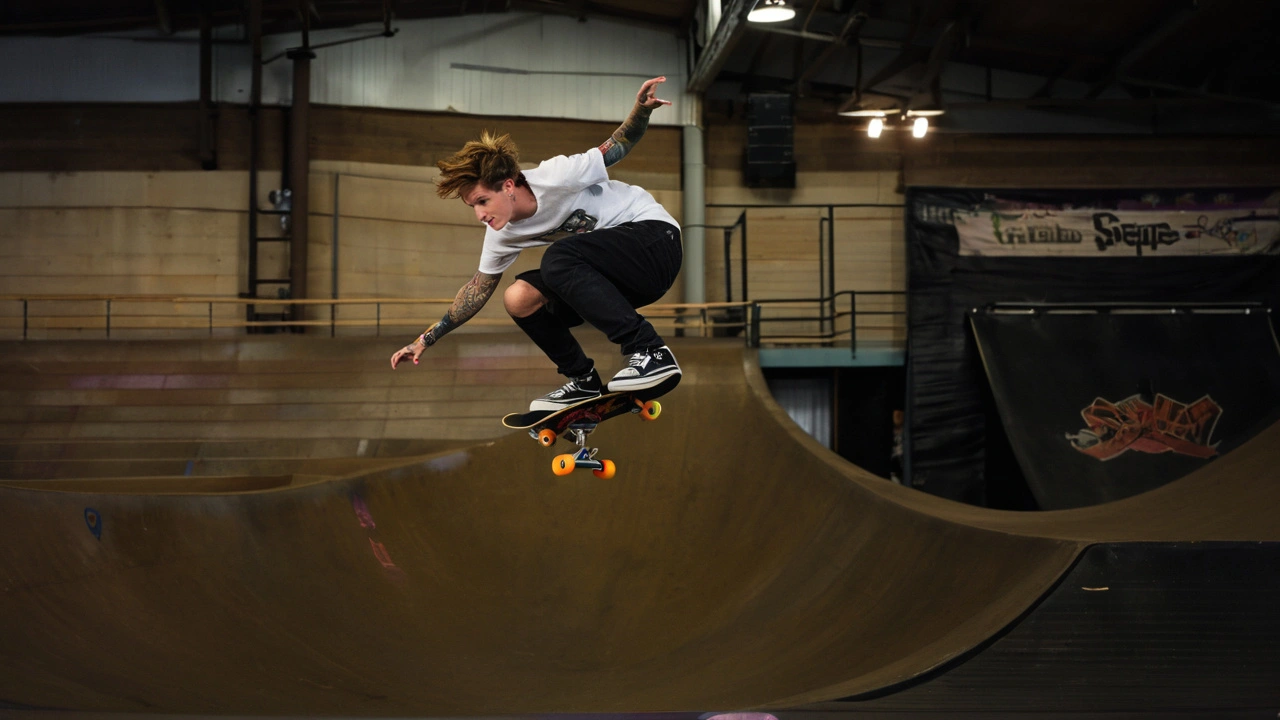
Nick Mullins to Perform at the Paris Olympic Games
In an inspiring turn of events, Nick Mullins, a skateboarder from Troy who lost his vision, is set to perform a mesmerizing skateboarding demonstration at the Paris Olympic Games. This event will take place on July 31, during the finals of the street and park skateboarding categories. Mullins, who has been blind since a medically induced coma following a skateboarding accident, is a testament to sheer determination, resilience, and the human spirit.
Since his accident, rather than stepping back from the sport he loves, Mullins has continued to skateboard and even teaches skate lessons. His determination to continue skateboarding without sight showcases his incredible passion and dedication. Imagine navigating the world of skateboarding: the ramps, the rails, the jumps—all without the sense of sight. For many, it would be an insurmountable challenge, but for Mullins, it’s just another obstacle to overcome.
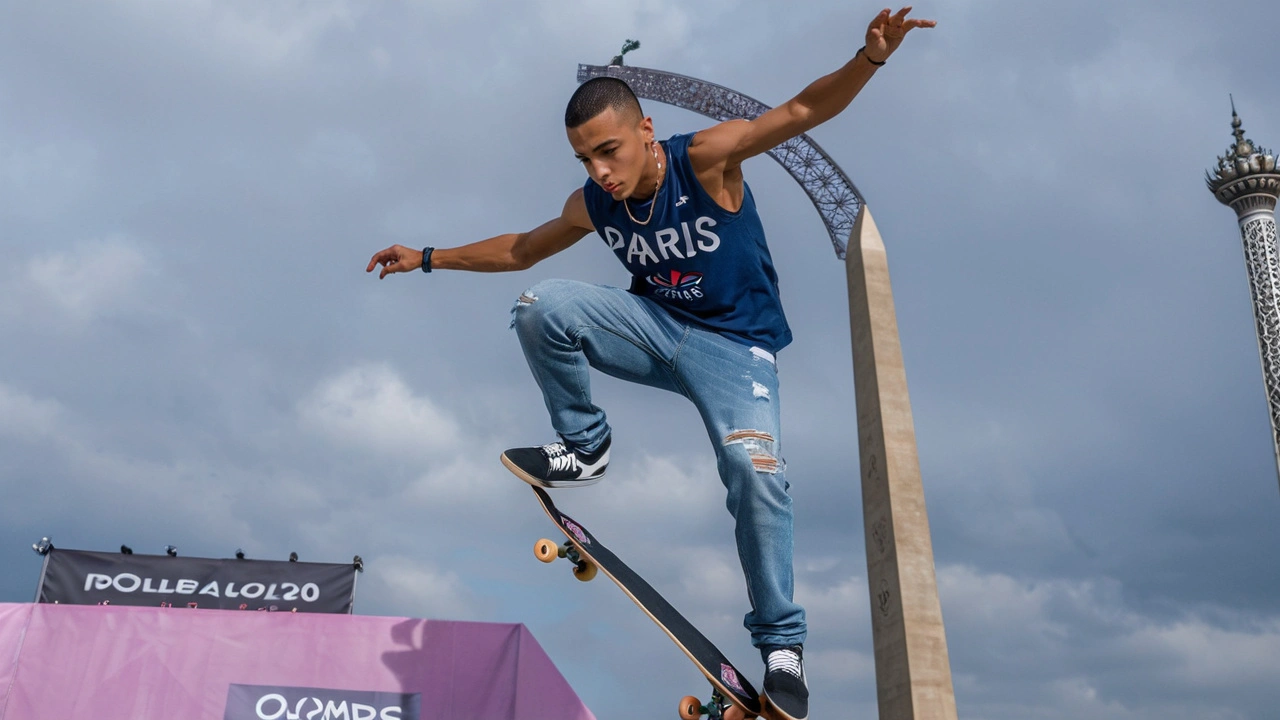
Skateboarding Without Sight: Mullins’ Unique Abilities
One of the fascinating aspects of Mullins’ skateboarding is how he has adapted to his lack of vision. He relies heavily on his spatial awareness and the echoes of his skateboard’s wheels to understand his surroundings. Through these auditory cues, he creates a kind of 3D mental map that guides him as he performs tricks and maneuvers that most sighted people would find challenging. This level of skill requires an extraordinary connection between one’s body and environment, something Mullins has managed to master over the years.
His story has touched many lives, illustrating that true passion and dedication can break down barriers, whether physical or mental. Mullins has repeatedly expressed his desire to be recognized as a skateboarder first and foremost, not just a ‘blind skateboarder.’ This distinction speaks to his commitment to the sport and his quest to push his abilities as far as they can go.
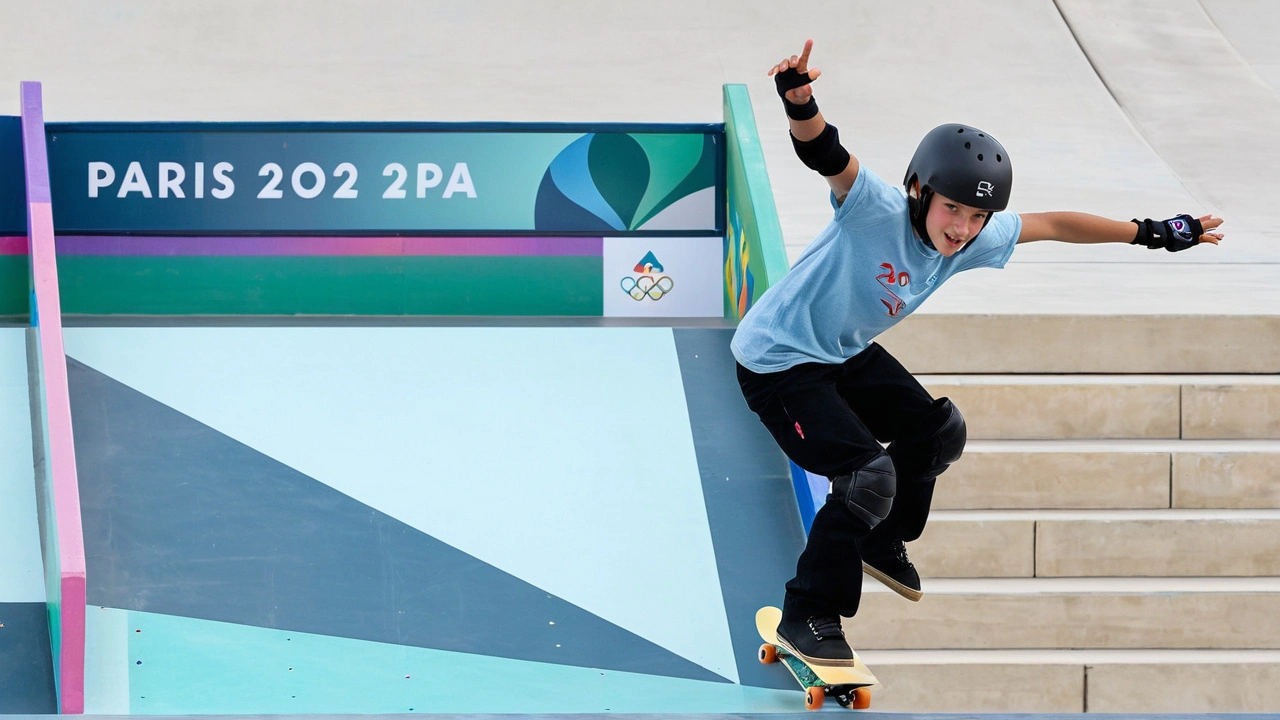
The Road to Paris: A Journey of Determination
The journey to the Paris Olympic Games for Mullins has not been easy. Following his accident, the road to recovery was long and arduous. He had to relearn many basic tasks, adapt to a new way of living, and confront the psychological challenges that come with such an abrupt life change. However, his love for skateboarding never wavered. He used his passion for the sport as both a physical and emotional outlet, steadily working his way back to the skill level he aspired to.
Performance and Recognition
Mullins’ upcoming performance at the Olympics is not just about showcasing his skills but also serves as an inspiration to many. He’s not just representing Troy or even just the United States; he’s representing anyone who’s been told that they can’t. Anyone who has faced seemingly insurmountable obstacles and come out the other side stronger will see a bit of themselves in Mullins’ journey.
The demonstration will feature Mullins along with about eight other talented skaters. It's set to be a captivating display of skill and artistry, underscored by Mullins’ incredible story of resilience. The participation of a skateboarder like Mullins in the Olympics is groundbreaking, paving the way for more inclusive representation in the future.
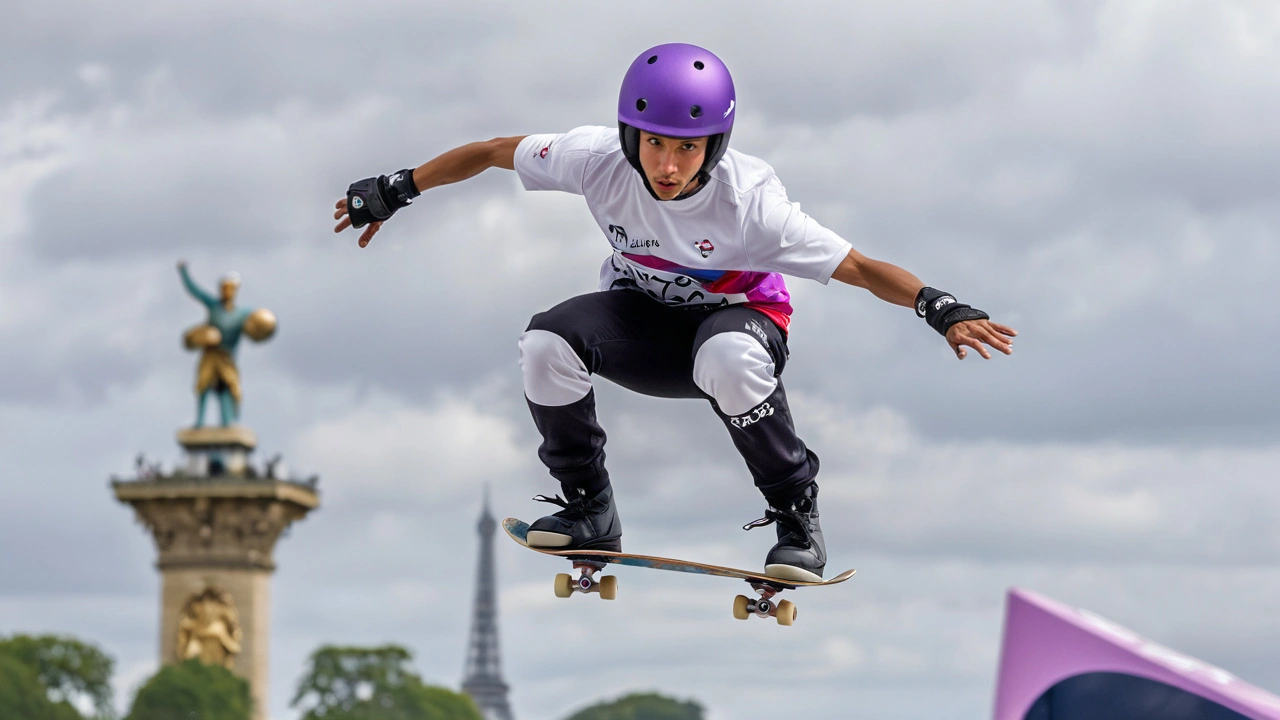
Impact and Legacy
Mullins’ story is not just one of personal triumph, but it also speaks volumes about the skateboarding community and the evolving perceptions around disabilities in sports. By continuing to pursue his passion, he has challenged and inspired others to rethink what is possible. This goes beyond skateboarding to touch on broader societal attitudes towards disability and capability.
The news of his performance at the Paris Olympics has garnered significant attention, shedding light on his remarkable journey and the positivity he brings to the sports community. His involvement offers hope and encouragement to many, highlighting that determination, love for sport, and unwavering passion can lead to extraordinary achievements.
As skateboarding fans and supporters await his performance, one thing is certain: Nick Mullins will leave an indelible mark on the Paris Olympic Games. His story will resonate far beyond the skateboarding community, touching lives across the globe.

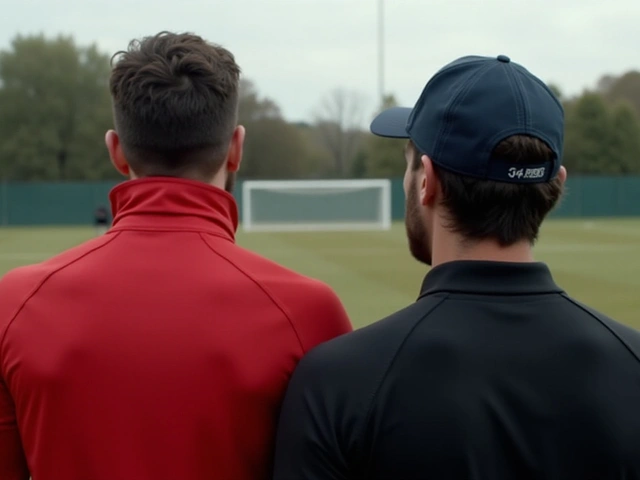

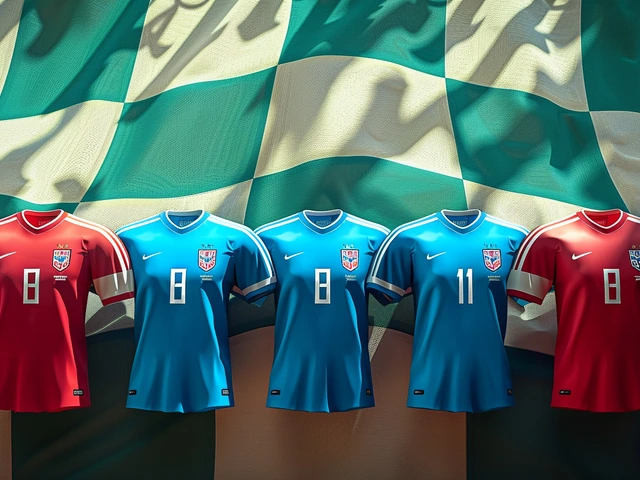
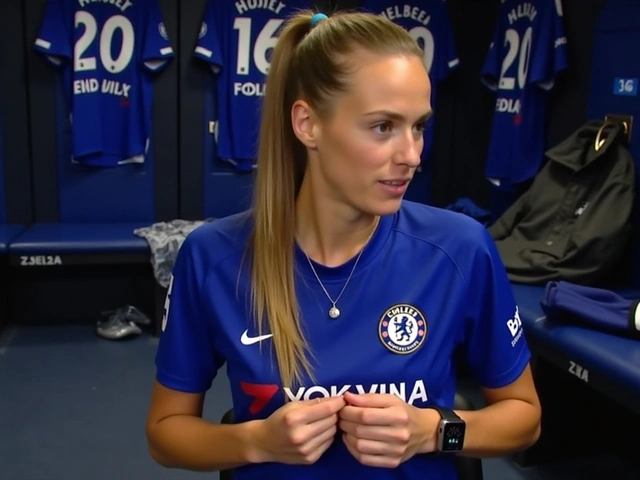
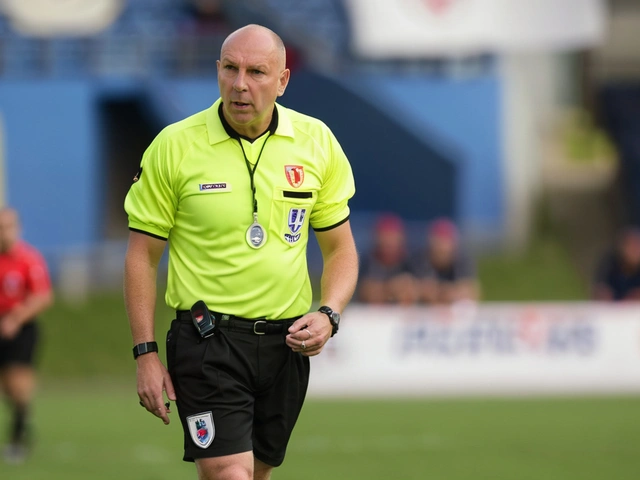
Kimberly Hickam
July 28, 2024 AT 03:54It is a peculiar intersection of neuroplasticity and cultural mythmaking when one observes Nick Mullins carving his path through the concrete labyrinth of skate parks, for he illustrates not merely an anecdote of personal triumph but a microcosm of the human condition's relentless pursuit of meaning beyond sensory constraints; the fact that a blind athlete can rely on auditory reverberations of wheels against metal and wood to construct a mental cartography is a testament to the brain's remarkable capacity to rewire and adapt, and it beckons us to reevaluate the primacy we assign to vision in sport; moreover, the sheer audacity involved in performing a demonstration at an Olympic venue underscores a broader societal shift toward inclusivity, yet we must remain vigilant against tokenism, for the spectacle should not eclipse the sustained labor behind the scenes; his journey, marked by a medically induced coma and subsequent years of relearning basic motor functions, embodies a narrative arc that would satisfy any classical tragic hero, but with a resolution that favours empowerment over downfall; in pedagogical terms, Mullins' teaching of skate lessons to sighted and non‑sighted pupils alike creates a feedback loop wherein his expertise both informs and is informed by the community's evolving attitudes; the echoes of his board, akin to a percussive language, conjure a symphony of spatial awareness that challenges our preconceptions of limitation; this performance, slated for July 31, will not only add a layer of artistic flair to the street and park finals but will also embed a conversation about disability, agency, and representation into the Olympic discourse; one could argue that his presence transcends the confines of skateboarding, acting as a catalyst for broader discourse on accessibility in sports; while media narratives may gravitate toward the sensational, the underlying methodology-rigorous training, disciplined sensory substitution, and psychological fortitude-remains the true engine of his success; as scholars of sport and society, we ought to dissect the structural support mechanisms that facilitated his comeback, from adaptive coaching to technological aids, and recognize them as essential components of inclusive athletic development; such analysis offers a blueprint for future initiatives aimed at integrating athletes of diverse abilities into mainstream competition; ultimately, Mullins' demonstration will reverberate far beyond the ramps, echoing in policy debates, community programs, and individual aspirations alike, reminding us that the human spirit, when channeled through perseverance, can transform perceived deficits into extraordinary capabilities.
Gift OLUWASANMI
July 28, 2024 AT 20:34Yo, the whole "blind skateboarder" hype is deliciously ripe for a splash of colorful critique; while the media loves to paint Mullins as a miracle‑wrapped mascot, the reality is that his skill set is forged through relentless grind, not some magical auditory superpower that makes the rest of us look like clumsy toddlers; you can hear the wheels whispering secrets, but it's his stubborn ego that translates those whispers into sick tricks, and that’s a narrative worth applauding without drowning it in saccharine platitudes; the Olympics love a good feel‑good story, yet they should also spotlight the systemic support-adaptive equipment, specialized coaching-that made this performance possible, otherwise we’re just feeding the spectacle circus.
Keith Craft
July 29, 2024 AT 13:14Indeed, the gravity of Mullins' endeavor cannot be understated; whilst one may be tempted to extol his perseverance in a tone reminiscent of theatrical melodrama, it behooves us to acknowledge the meticulous craftsmanship underlying his demonstration, a synthesis of disciplined training regimens and an acute auditory spatial mapping that rivals any sighted counterpart's precision; thus, the performance transcends mere novelty, emerging as a substantive contribution to the evolving discourse on athletic inclusivity.
Kara Withers
July 30, 2024 AT 05:54Nick's story is an excellent case study for adaptive sports programs; coaches can incorporate auditory cue training to help athletes improve balance and orientation, and community skate parks could install subtle sound markers to aid navigation for those with visual impairments; sharing these practical steps encourages others to create more inclusive environments without needing media fanfare.
boy george
July 30, 2024 AT 22:34Cool point but dont overstate it.
Cheryl Dixon
July 31, 2024 AT 15:14While many celebrate Mullins as a beacon of progress, it's worth pondering whether a single demonstration truly reshapes entrenched perceptions of disability in sport, or merely offers a momentary glimpse that fades once the applause subsides; still, his presence injects a necessary dialogue about equitable access, even if the broader systemic changes lag behind the spotlight.